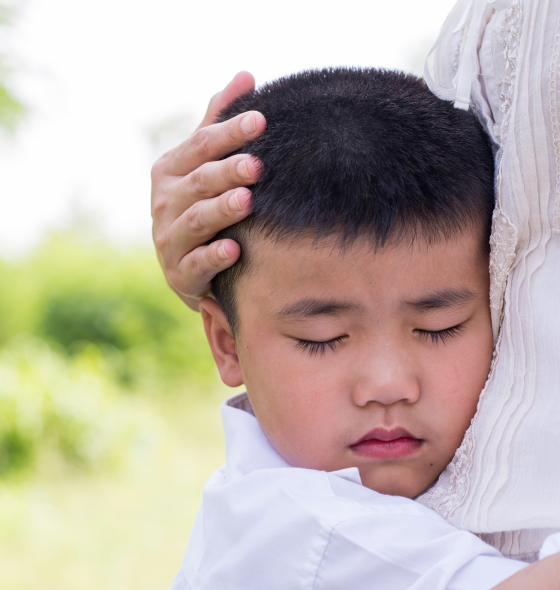Child Custody in Atlanta
Guiding You Through the Process
WE STAND BY YOU
Secure Legal Advice Now
When parents decide to dissolve a marriage, their children are often the innocent bystanders to the emotional toll that may have been building for years. Most parents fear missing out on important milestones in their child’s life. Knowing they will have to share their children between holidays and vacations can be a gut-wrenching proposition.
INSTANTLY ACCESS OUR LEGAL TEAM

Chambers Family Law can thoughtfully assist you in determining where and how much time your children will spend with each parent.
When parents decide to dissolve a marriage, their children are often the innocent bystanders to the emotional toll that may have been building for years. Most parents fear missing out on important milestones in their child’s life. Knowing they will have to share their children between holidays and vacations can be a gut-wrenching proposition.
Engaging experienced child custody attorneys can help ensure your children receive a stable and supportive environment during and after your divorce.
5-Star  Reviews
Reviews
Types of Child Custody
Child custody involves two categories (physical and legal), which address and fall into three potential options (sole, primary, or joint custody).
Physical Custody
Physical custody refers to where the child(ren) physically live or spend time with either spouse, and how much time each parent will spend with the child(ren), known as a “parenting schedule.”
In rare or extreme circumstances, one parent may be awarded sole physical custody of the child and the other parent may or may not have visitation rights (or may have supervised visitation rights). However, sole custody is generally awarded only in extreme circumstances when the child(ren) may be endangered or at risk in the other parent’s custody.
Primary custody is when the child lives with or spends more time with one parent than the other. Visitation schedules (or the “parenting plan schedule”) for the parent who does not have primary custody can vary significantly and may depend on the desires of the parents and the needs of the child(ren).
Joint custody is when physical custody is shared by both parents, for the most part equally, with each parent having equal or 50% of the time with the child(ren).
Legal Custody
Legal custody refers to a parent’s rights regarding the major decisions impacting the child(ren), such as education, medical, religion, extra-curricular, and other decisions regarding the welfare and best interests of the child(ren).
Joint legal custody means both parents have a say in these decisions; however, the court will require that one parent be designated as the primary tie-breaking decision maker on these four major issues in the event of an impasse. The tie-breaking authority can be allocated to each parent or just to one parent.
How Child Custody is Determined
During a divorce, it is the court’s job to determine child custody based on what is in the best interests of the child(ren). Georgia law prohibits juries from determining custody matters, leaving this decision solely in the hands of the judge.
Depending on the judge assigned to your case, he or she may look at anything they consider relevant when determining the child(ren)’s best interests, but in general will evaluate the following:

in general A JUDGE WILL evaluate the following:
- Each parent’s ability to provide for the child’s physical and emotional needs
- The role each parent has played in nurturing the child since birth
- Future and prospective ability of each parent to provide care
- Each parent’s history of alcohol or substance abuse and addiction
- Any history of domestic violence or child abuse
- The child’s relationship with each parent and the child’s preference
- Which parent has been the primary care giver
- The work and/or travel schedule of each parent
Also, the court may consider the requests of the child(ren), subject to certain statutory guidelines and rules (14 being the age of election; however, the court can consider the wishes of children from ages 11-13).
Atlanta’s Best Child Custody Attorneys
Modifying Existing Custody Orders
While no parent wants to put their child through additional distress after a divorce, there can be factors that require a modification to child custody orders and/or to the visitation/parenting schedule.
The legal requirement to obtain a modification of a prior custody order or in the parenting schedule is to establish a material change in condition from the date of the prior custody order and the present. Ideally, both parents can agree to a legal modification without involving the court, but when that is not possible, a judge will preside over a custody modification hearing and determine the outcome.
Child custody modification orders can be initiated by either parent, by the agreement of both parents, or the court may consider the election of the child(ren), subject to certain statutory guidelines and rules (14 being the age of election; however, the court can consider the wishes of children from ages 11-13).
Negotiation or mediation allows the parents to maintain control over the decisions without the court’s intervention. Chambers Family Law strongly recommends avoiding unnecessary issues when modifying any child custody agreement and suggests formalizing any new arrangement with the assistance of our experienced attorneys.
We understand that these decisions are extremely important to both parents, and are often very stressful, emotional and can be profoundly consequential to our clients and their child(ren), so we work diligently to help our clients make informed and safe decisions that will benefit the child(ren) and you long term.
Chambers Family Law is experienced and prepared to successfully handle cases involving parenting plans, residential schedules, and child custody.
Atlanta’s Best Child Custody Attorneys
Frequently Asked Questions About Child Custody
Depending on the type of violation to a child custody or visitation order, the court can hold the offending parent in contempt and order penalties in the form of fines and/or changes to the existing custody order, including changing the amount of parenting time with the offending parent.
First, be absolutely sure, but if you become anxious about your child(ren)’s health or safety you can involve law enforcement and ask them to assist in picking up your child(ren). Further, you should promptly notify your child(ren)’s physician and therapist, and then notify an attorney.
Prompt action is critical in this situation, and delaying action could create the appearance that the issue is not really of concern or that harmful to the child(ren); and to the contrary, it could be seen as a retaliatory tactic being fabricated or exaggerated for legal benefit.
Situations change over time, and a custody arrangement that worked at the time of your divorce may not work several years down the road.
If you have had a substantial change in circumstances, such as a job-related relocation to another city or state, or if your ex-spouse is threatening to move the child(ren) to another state, our child custody lawyers can help you through the process of pursuing a modification to custody orders.
